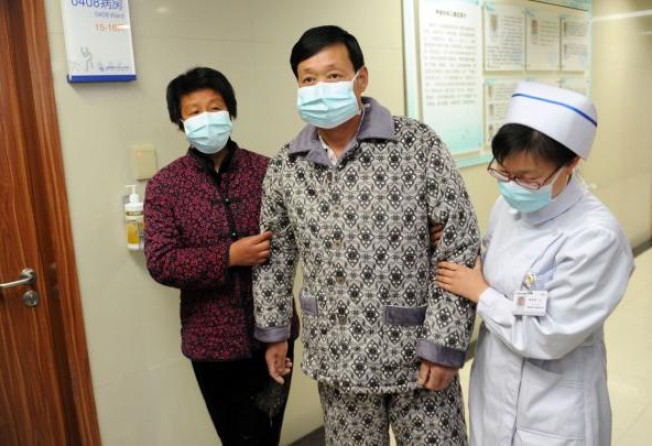
Elderly 'most at risk from H7N9 bird flu virus'
Study shows most cases involve people over 60 as four new cases revealed, taking total to 91; WHO official says human transmission is 'rare'

New research has revealed the elderly are most at risk of contracting the H7N9 bird flu virus, but health officials are still uncertain how humans are becoming infected.

Few of the children on the mainland who have contracted the virus have been seriously ill.
This is in sharp contrast with the H5N1 strain, which caused a high proportion of severe cases and deaths in the young.
The H7N9 virus has been found in 91 people on the mainland, including four new cases in the eastern provinces of Jiangsu and Zhejiang. It has caused 17 deaths.
The findings come as the World Health Organisation (WHO) expressed concern that more than half of those infected by the virus had not been in contact with poultry. The WHO also revealed details of three families who had shown possible human-to-human transmission.
But its China representative Michael O'Leary said it appeared human-to-human transmission was rare. "This is still an animal virus that occasionally infects humans," he said.
"With rare exceptions, we know that people are not getting sick from other people. What we don't know is the size of the iceberg under this tip."
The research also raised the possibility that the hepatitis B virus might be a contributing factor to fatalities. This could be "problematic" as the number of hepatitis infections in China and other Asian countries is extremely high.
Scientists analysed 60 confirmed cases received before Monday and found 61 per cent of severely affected patients were over the age of 60. "It may due to an imbalance in exposure of the elderly [to H7N9], or physiological factors related to ageing, such as decreased immune function," the report said.
President Xi Jinping yesterday called for strict controls on sources of infection and more checks on live poultry. He was also quoted by Xinhua as urging officials to do their utmost to "contain the spread" of H7N9.
Xi said local authorities should prioritise public safety and health, as well as strengthening disease control and prevention. He said researchers should work to accelerate the development of vaccines.
An international team of epidemiologists and other experts led by the WHO and government officials will visit live-chicken markets and hospitals in Beijing and Shanghai.
The mainland's poultry sector has been hit by losses of more than 10 billion yuan (HK$12.4 billion) due to the H7N9 outbreak.
Agence France-Presse, Reuters
View H7N9 map in a larger map
Click on each balloon for more information on individual patients infected: blue, patients infected with the H7N9 virus under treatment; red, those infected with H7N9 who have died; yellow, those who have fully recovered; and pink, those infected other types of the Influenza A virus, including H1N1.